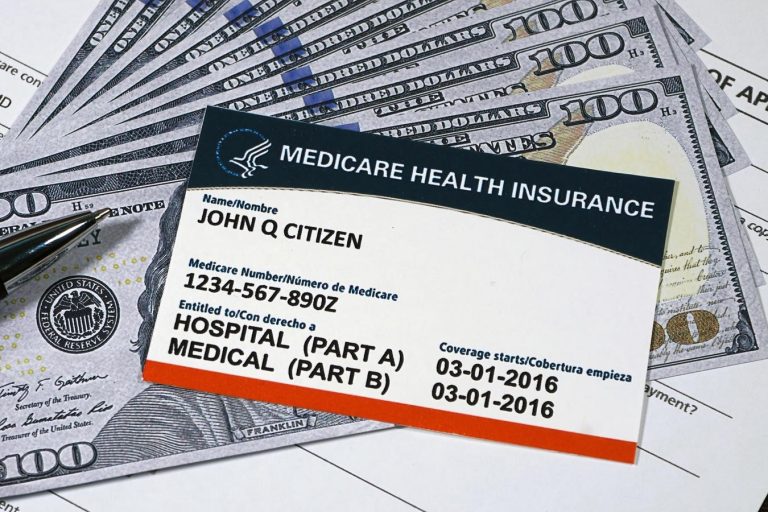The ability to switch Medicare plans isn’t as available as many beneficiaries are told or believe.
Most Medicare beneficiaries know that each year during open enrollment (October 15-December 7) they’re allowed to change their coverage. The new coverage will take effect the following January 1.
During open enrollment, a beneficiary can switch from one Medicare Advantage plan to another. Or someone in a Medicare Advantage plan can move to original Medicare. A move from original Medicare to a Medicare Advantage plan also is allowed.
Of course, during the initial enrollment period (the seven months that include the month a person turns 65 years old and the three months both before and after), a person can enroll in any of the Medicare plans available in his or her geographic area.
After the initial enrollment period, Medicare allows certain changes outside of the annual open enrollment period.
For example, you’re allowed to switch from one Medicare supplement (or Medigap) policy to another at any time. Or a beneficiary can transfer from one Medicare Advantage plan to another.
The law and regulations allow these changes. Insurance agents and companies will state these rights when presenting their plans and assuring you there’s no risk to trying them. You always can switch later.
But some practical factors prevent people from making all the changes the law allows.
During the initial enrollment period, companies offering Medigap policies are required to issue a policy to everyone who applies and to charge the same premium as every other applicant of that age and in that locality.
No medical underwriting is allowed. The insurer can’t review an applicant’s medical history or require a physical exam before deciding whether to issue a policy. An application can’t be denied because of pre-existing medical conditions. This rule is known as “guaranteed issue.”
Once a person buys a Medigap policy, it is guaranteed renewable. With few exceptions, the insurer must renew the policy each year, if the beneficiary chooses, without any medical underwriting. Premiums must be the same as for others in the beneficiary’s class.
But in most states, guaranteed issue ends with the initial enrollment period.
Medicare law allows each state to continue the guaranteed issue requirement or institute other protections for Medicare beneficiaries after the initial enrollment period. But most states decline to issue such protections.
Guaranteed issue is continued in only four states. Connecticut, Massachusetts, and New York impose guaranteed issue continuously. Maine requires it for one month every year for Medicare Supplement Plan A policies and has some protections in other months.
In 28 states, insurers are required to issue Medigap policies to eligible applicants whose employers changed their retiree health benefits, according to the Kaiser Family Foundation.
In all other states and situations, after the initial enrollment period insurers can conduct medical underwriting and deny coverage or charge higher premiums to most applicants because of pre-existing medical conditions or health history.
There often are exceptions, such as for beneficiaries who recently moved or who are in the Medicare Advantage trial period (discussed below). But for the most part, beneficiaries aren’t sure they can obtain a Medigap policy after their initial enrollment period. Or they might have to pay a higher premium to obtain a policy.
Those who enroll in Medicare Advantage plans have a one-year trial period they should be aware of and be ready to exercise.
Under the trial, during the first year of enrollment in a Medicare Advantage plan, the beneficiary can decide it was a mistake, disenroll, return to original Medicare, and buy a Medigap policy. The beneficiary has the right to buy any Medigap policy sold in the area.
A similar right applies to someone who started in original Medicare with a Medigap policy and in a subsequent year dropped the Medigap policy to enroll in a Medicare Advantage plan. Within one year, the beneficiary has the right to drop the Medicare Advantage plan and resume the previous Medigap policy. If that policy no longer is available, the beneficiary can buy any policy sold in the state.
These practical matters mean a beneficiary might not be able to exercise the right to change Medicare plans and enroll in whatever plan they want after the initial enrollment period.
There won’t be a problem changing from one Medicare Advantage plan to another. It also should be easy to move from original Medicare to Medicare Advantage.
But if you want to move from Medicare Advantage to original Medicare, you might not be able to obtain a Medicare supplement policy. The ability to do so will depend on your age, health history, and the insurers you apply to.
The same practical limit applies to attempts to change from one Medicare supplement policy to another.
I always recommend that anyone enrolled in original Medicare also have a Medicare supplement policy and a Part D prescription drug policy to fill the coverage gaps in original Medicare.
Medicare Advantage policies are popular. It’s estimated that in 2024, for the first time, more than half of Medicare beneficiaries are enrolled in Advantage plans.
Advantage plans offer benefits not available in original Medicare. They also usually charge lower premiums and other out-of-pocket costs for healthy beneficiaries.
But out-of-pocket costs can be higher than under original Medicare when the beneficiary needs a fair amount of medical care during the year. Also, the Medicare Advantage beneficiary has a limited choice of doctors, hospitals, and other providers.
When deciding on a Medicare plan, it’s important to think long term and consider different scenarios.
Read the full article here









